Of the handful of countries in the world that managed to stay completely Covid-free, almost all were islands in the South Pacific.
Most Pacific countries – protected by their remoteness and their governments’ decisions to close their borders – have kept their case numbers very low, with some notable exceptions, including French Polynesia, which restarted international travel early and suffered a devastating outbreak in the second half of 2020 and Papua New Guinea, which is now facing a very serious flare-up.
But, in these tourism-dependent economies, the closed borders that have kept them safe have also spelt financial disaster.
Before the pandemic, tourism contributed nearly 40% to Fiji’s gross domestic product – about FJ$2 billion (AU$1.4bn) – and directly or indirectly employed over 150,000 people. But as visitor arrivals fell by 87%, the economy plummeted by 19% in 2020.
Vanuatu’s tax revenues tumbled by about 19% from 2019 to 2020, with huge personal cost for residents. The Vanuatu Chamber of Commerce recently rolled out a social media campaign highlighting the impact of the economic slump on Ni Vanuatu business owners, deploying the hashtags #WeAreNotAllFine and #LaefIHadNaoia – life is hard now.
For the tiny country of the Cook Islands in the eastern Pacific, which, pre-pandemic, saw up to 17,000 tourists a month, even the creation of a travel bubble with New Zealand has not helped, with visitor arrivals yet to crack 200 people monthly. Samoa, with a more diversified economy, has fared better, but there’s little doubt the nation’s finances will be a hot topic in the coming general election.
Many have returned to farming, turned to family overseas, diversified businesses and relied on survival skills more commonly needed in the aftermath of a cyclone. Here is how three Pacific island countries have survived a year after their borders closed.
Vanuatu: Quarantine hotels and disaster-planning
Anthony Jaensch is General Manager of Tamanu Beach Resort, a boutique hotel half an hour from the capital of Port Vila. He estimates his business has dropped by 90% since the pandemic began.
Putting the once-exclusive resort on the rota to serve as a quarantine hotel for returned travellers hasn’t saved his bottom line, he said, but it does keep at least a few staff employed.
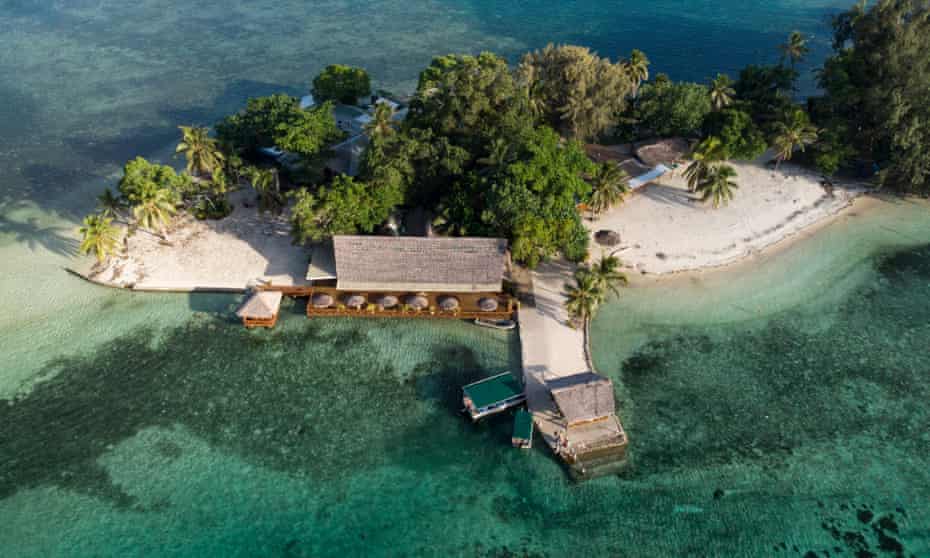
Others have to get by on the trickle of local business that has remained.
Mike Thompson operates Vanuatu Zipline, a non-invasive jungle tour that allows visitors to see the virgin forest canopy in a non-invasive manner. He finished construction of a cable-walking bridge spanning a spectacular canyon only months before the pandemic struck.
“We actually did the books yesterday,” he said, “and we’re 96% down … We’ve gone from 25 staff to essentially one.”
He attributes his business’s survival to habitual caution learned by living in what the World Bank says is the most disaster-prone country in the world. “We’ve had a bit of a cash reserve there to get us going, and we have a few other assets …. We’ve been able to sell those assets and recover some cash.”
“If it wasn’t for us being a strong business … we’d be dead.”
Thompson recounted how economic hardship has stretched Vanuatu’s resilient social fabric to tearing point. Families have been breaking up, he said, and thousands were seeking employment overseas as a last resort. He fears suicide rates will rise if conditions don’t improve.
The government of Vanuatu announced their Employment Support Programme last year, providing employers with a wage subsidy to help retain workers. The undertaking was fraught with delays and bureaucratic tangles. Of the US$30m earmarked for the programme, barely half was disbursed before the end of the year.
Vaccination is the top priority for business owners. In a video produced by the Chamber of Commerce, handicraft vendor Jocelyn Garae said, “If the vaccine doesn’t come, and the lockdown continues, then we’ll all be forced to shut down.”
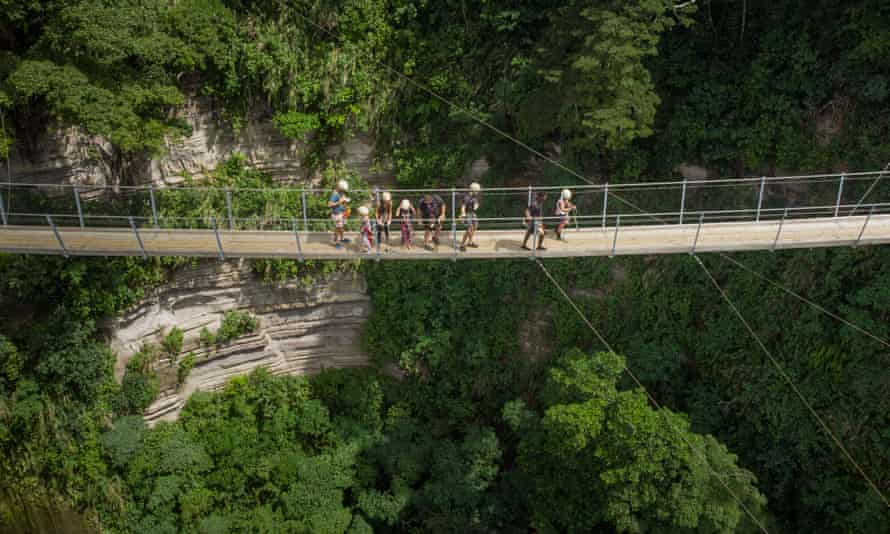
Fiji: Remittances and a return to the village
The past year has been one of the most painful on record for Litia Tuipulotu, a former worker in Fiji’s colossal but now paralysed tourism industry.
Tuipulotu and her marine engineer husband were laid-off when Covid-19 reached the island in March 2020, leaving her family of six wondering at times where their next meal would come from.
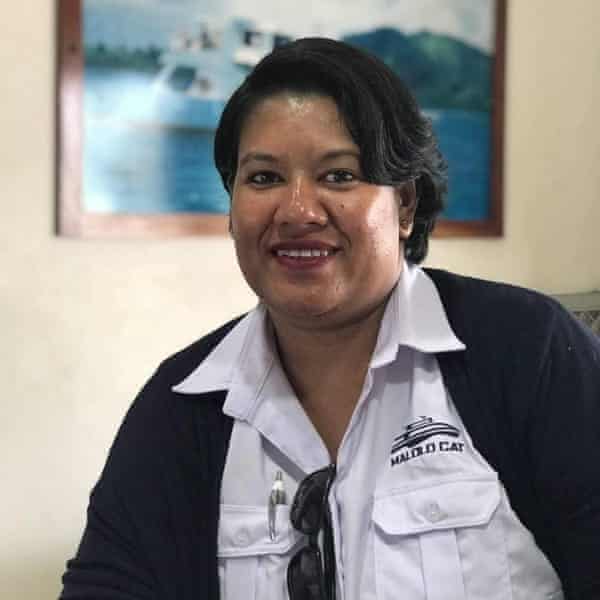
Tuipulotu, 33, worked as an admin clerk for a company doing boat transfers from Nadi’s Denarau Island, a popular hotspot with Australian tourists, which houses international hotel chains such as Sheraton Fiji, Radisson Blu Resort and Hilton Resort.
Having worked in tourism for seven years, she describes feeling “useless” without work while struggling to put food on the table, and would often break down in tears out of despair.
The stress of it caused tensions at home and the family was forced to trade in a ceremonial mat given to her only son on his first birthday for groceries and baby products.
“That was the most challenging moment we faced as a couple, realising we had our kids to feed, bills to pay, rent and loans to clear,” she said.
The family found solace and some peace of mind through various community networks such as church groups and support from elders.
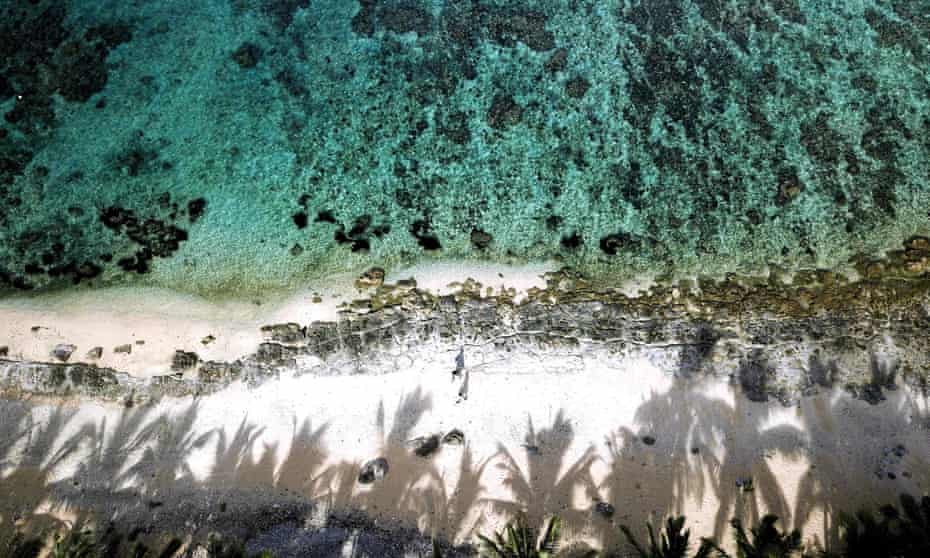
One-third of the country’s workforce, 115,000 people, have lost their jobs from the pandemic-induced economic fallout, with tourism workers the largest cohort of those who have lost their jobs.
Many have returned to their villages or taken up farming and fishing to make ends meet.
Support has also poured in from relatives and friends abroad in the form of remittances, which increased by 11% to an all-time high of $FJ652.75m (AU$416m) last year, according to Fiji’s central bank.
While negotiations continue for a travel bubble with Australia and New Zealand, Fiji’s government implemented some measures to ease the economic shock on families and businesses.
These have included unemployment payouts totalling FJ$102m (AU$65m), promoting a “blue-lane” initiative for billionaire yacht owners and, controversially, allowing unemployed workers to withdraw from their superannuation accounts.
The Fiji National Provident Fund (FNPF), which also owns four major resorts, has processed FJ$114.6m (AU$73.4m) in withdrawals since the pandemic began, but there are concerns about the sustainability and long-term impacts of the move.
“We are grateful for the help of FNPF but that is our own money that one day we could have used to send our kids to college or when we both retire,” Tuilupotu said.
“I am wondering if we will be able to recover back all that money if things ever return to normal.”
Tuipulotu’s husband has since managed to find work at a local shipping company to ease the family’s financial hardships.
But the struggle of the past year has changed the family’s outlook on work and life, and made them appreciate the importance of developing and cultivating community networks.
“Covid-19 made us realise that we cannot depend on our job as the only source of living and that we must cherish each and every person we have in our lives,” she said.
Cook Islands
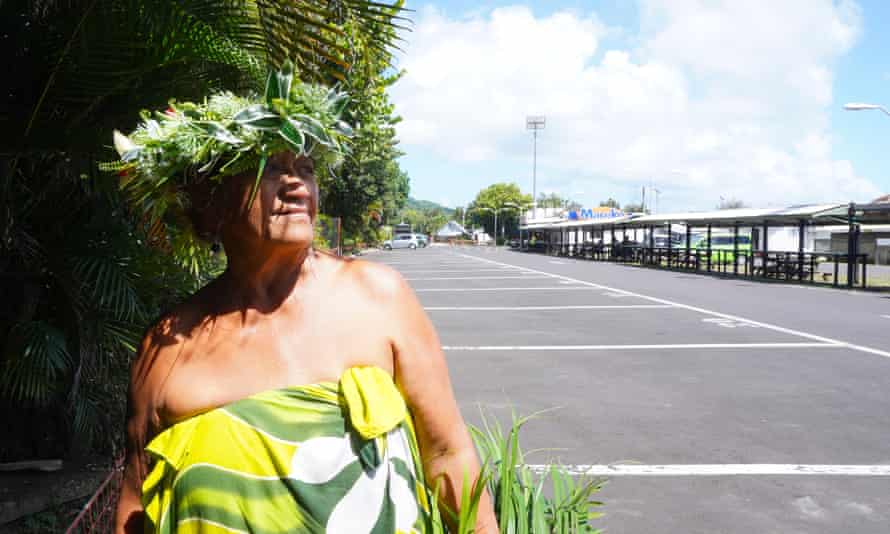
In late March last year when the Cook Islands – a country of roughly 18,000 people in the east of the Pacific – shut its borders, tourism revenues effectively went to zero overnight. Since then, residents have been waiting for tourists to return, but lately, their patience appears to be wearing thin.
Local artist Ine, who owns The Little Red Gallery in the capital Avarua on the island of Rarotonga with his wife, says he began preparing for the worst in those early days.
“The news was saying a couple of weeks, maybe a couple months. But realistically, we’re practical guys, and we saw how fast this thing was spreading, we were like ‘nah this is gonna last a little longer’,” the artist says.
“That’s when we started thinking about starting up our gardens, going fishing for our food, things like that.”
In 2019, the Cook Islands welcomed 171,550 visitors and the tourism industry contributed NZ$1m ($698,000) to the economy every day. Ine estimates that prior to the pandemic, 80-90% of the gallery’s customers were tourists. With none, their business has been nearly wiped out, with just the occasional sale to local buyers.
When borders were closed, the private sector and government moved swiftly to prevent a recession. The government put together an economic response package worth NZ$61m ($42.6m), which included a wage subsidy and grants to keep workers on the job and businesses from shutting down their operations. Since then, government has been spending NZ$7m ($4.8m) a month to provide financial assistance to individuals and businesses – money which it simply does not have.
While widely applauded domestically, the government’s rescue package – funded through now-depleted cash reserves, borrowings from development banks, and New Zealand aid – drew scorn from some New Zealand commentators. They questioned why they were contributing to the Cook’s recovery when their own travel sector had also suffered.
Eve Hayden, chief executive officer of the Cook Islands Chamber of Commerce says she empathises with New Zealand tourism operators who have dealt with their share of hardship. But she says the New Zealand government also has an obligation to look after the Cooks as the two countries share a special relationship.
“Cook Islanders are New Zealanders, and the Cook Islands is a Realm country of New Zealand,” she says. “If the Cook Islands economy collapses, NZ will have its team of 5 million increase by 17,000.”
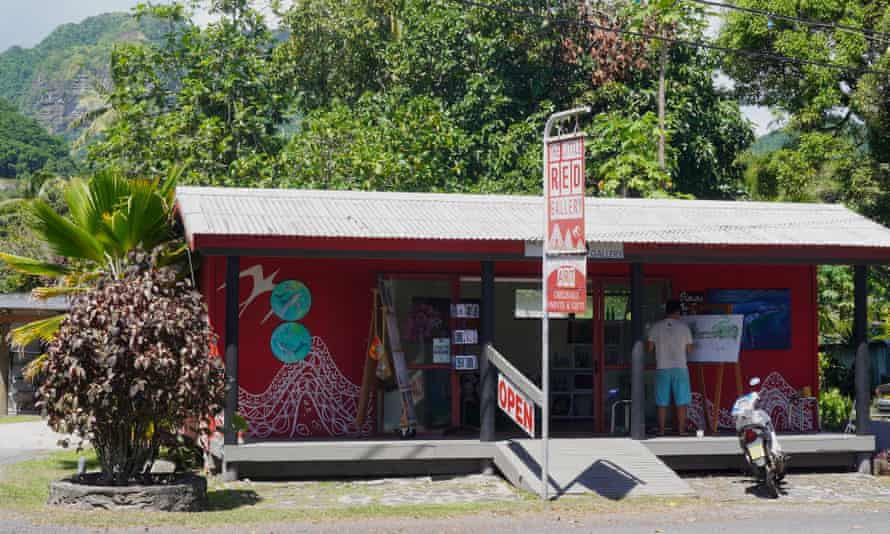
Some operators have used the hard times to build and refine their product.
Local guide Josh Utanga operates a tour company that specialises in underwater tours of Rarotonga’s lagoon and reef. With the extra time, he’s diversified into health and wellness by building a sauna for surfers and others looking to unwind. “For me it’s been a year of reinvention,” he says.
Others haven’t had such opportunities. A weak jobs market has fuelled a wave of depopulation, with hundreds of residents traveling to New Zealand to seek seasonal work and higher wages.
As he places a paint brush on a large canvas in front of his mostly empty gallery, Ine says he has no plans to leave. There is too much at stake.
“I see a lot of people leaving for New Zealand for money, but if we all did that, then our tourism is stuffed because all of us mini-businesses also make people want to come over here,” says Ine.
This content first appear on the guardian
